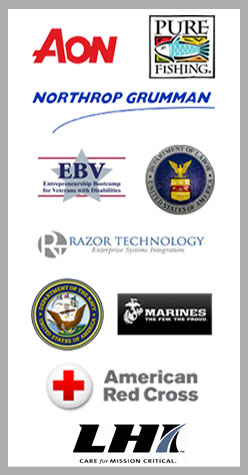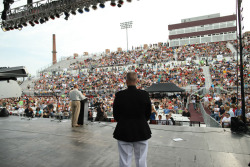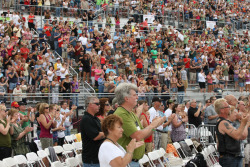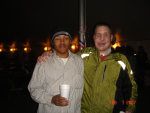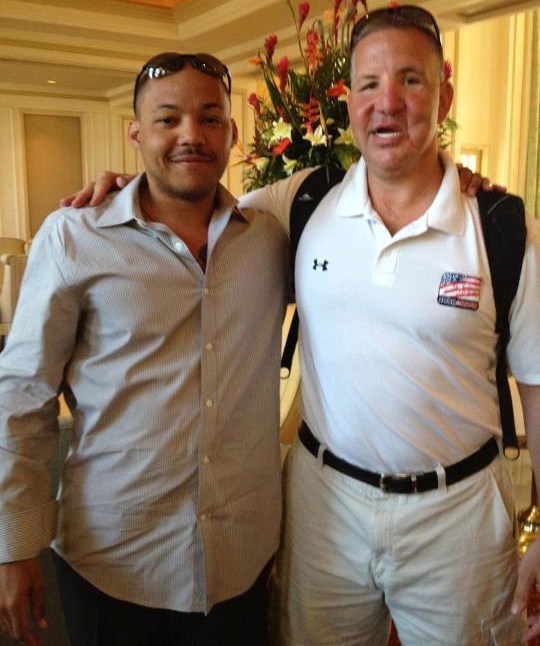Fighting For Rights and Breaking Down Barriers
 Friday, September 28, 2012 at 09:26PM
Friday, September 28, 2012 at 09:26PM War is vicious, brutal and traumatizing, and never is there a true “winner.” Everyone loses to some degree – one just needs to look at the growing number of wounded in Iraq and Afghanistan, the killed in action, the suicide rates and the broken families to see that. Or a short walk past the Vietnam Wall Memorial, which will certainly reduce anyone to tears, is perhaps the most poignant reminder of loss from war.
Veterans from all wars have seen their share of atrocities, but at least today’s warriors have been welcomed home with open arms. As we all (hopefully) know, that wasn’t the case forty years ago. Those veterans had nowhere near the resources we have today, although there are still many individuals and families falling through the cracks. There have been, however, a number of very significant medical and legislative advancements after the wars in Vietnam, as well as Iraq and Afghanistan, which have benefited individual service members and our society as a whole.
It is no secret that disabled veterans coming home from Vietnam played a significant role in the passage of the groundbreaking U.S. Rehabilitation Act of 1973. This critical legislation prohibits discrimination on the basis of disability in programs conducted by Federal agencies, in programs receiving Federal financial assistance, in Federal employment, and in the employment practices of Federal contractors. Certainly the disability movement did not start with the Vietnam veterans, but they were young, fresh off the battlefield and much more demanding and visible than civilians who had been born with their conditions and more prone to seeking privacy. Then, as now, veterans and veterans groups were active and effective in lobbying for help. Ultimately, governmental and private assistance to our veterans has influenced subsequent public policy toward civilian welfare measures and toward the disabled in general.
Similarly, today’s generation of warfighters have truly helped shine a spotlight on the issue of behavioral health, an issue relevant to civilians as well as members of the military. A 2008 RAND study of veterans of the Iraq and Afghanistan wars concluded that nearly 1 in every 5 veterans is suffering from one or more behavioral health disorders, and that many of those afflicted do not receive adequate care. The study shows that mental disorders are both prevalent and long-lasting, and that often they do not surface until well after the initial trauma has passed.
Post Traumatic Stress Disorder (PTSD) and Traumatic Brain Injury (TBI) are commonly referred to as the “signature wounds” of today’s wars. In fact, the American public seems so aware of this phenomenon that any number of popular television shows feature story lines of veterans facing these injuries, including Law and Order, Person of Interest, Army Wives and Grey’s Anatomy. Thus, this generation has played an integral role in raising the national dialogue on mental and behavioral health – if we can continue to reduce the stigma of these issues within the military culture, this will certainly benefit our society as a whole. This is especially critical because closely linked with these maladies are the issues of drug and alcohol addiction, depressive disorders and suicide, all of which exist (as do PTSD and TBI) throughout society.
The veterans from the Vietnam War have pledged that never again will one generation of veterans abandon another. They have paved the way for today’s warriors with regard to many of the rights we now enjoy, and in so doing they have also benefited our society as a whole. Our service members who have fought in Iraq and Afghanistan, and their families as well, have also contributed significantly to medical advancements as more and more of us survive catastrophic injuries. Within the military community, we need to continue to be open about injuries and treatments – not only with this help those on the front lines, but many more so throughout our society.
 Afghanistan,
Afghanistan,  Army,
Army,  Iraq,
Iraq,  Marine,
Marine,  PTSD,
PTSD,  TBI,
TBI,  Vietnam Veterans,
Vietnam Veterans,  injury,
injury,  military in
military in  Inspirational,
Inspirational,  Leadership
Leadership 





